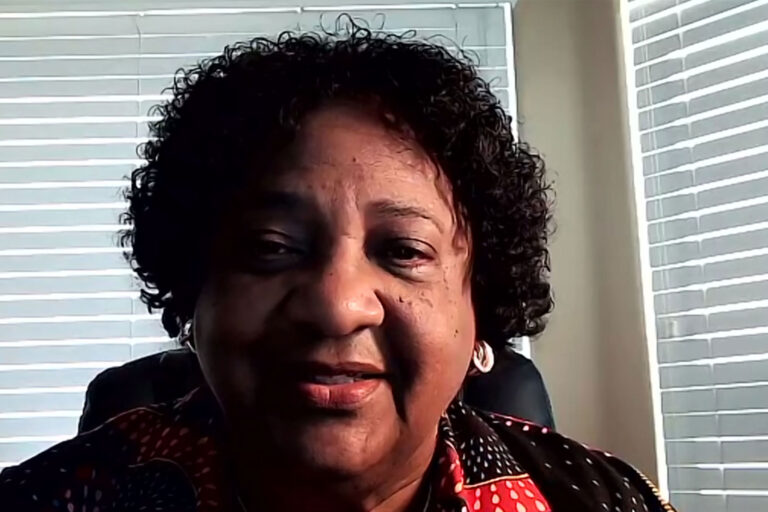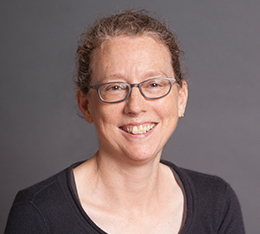PPIC’s Speaker Series on California’s Future invites leaders from across the political spectrum to participate critically, constructively, and collaboratively in public conversations. The purpose is to give Californians a better understanding of how our leaders are addressing the challenges facing our state.
PPIC is a nonpartisan, nonprofit organization. PPIC does not take or support positions on any ballot measure or on any local, state, or federal legislation, nor does it support, endorse, or oppose any political parties or candidates for public office. Any opinions expressed by event participants are theirs alone and do not necessarily reflect any position of the Public Policy Institute of California.
Dr. Shirley Weber did not expect to become California’s first Black secretary of state. When she got the call from Governor Newsom, she had just been elected to a fifth term in the California State Assembly. “I was very content as a legislator,” she told Mark Baldassare during a wide-ranging conversation last week. “I thought I had done some good work, and I had interrupted my retirement to do it.”
But she realized that she had to take on this new challenge. Her lengthy record of activism and advocacy in California is rooted in her family’s experience in the Jim Crow South, and her parents were passionate about voting. “I think that, more than anyone, I know why it’s important to vote,” she said. “I know what happens when you’re denied the right to vote and also when you don’t believe you have anything to vote for.”
Weber took office in the wake of a groundbreaking “pandemic election.” As Baldassare noted, a record-high number of Californians voted last November, and turnout among registered voters (80%) was the highest it has been since 1976. “The COVID impact on elections was positive,” Weber said. “I’ve been meeting with registrars of voters across the state virtually, and every last one of them has said that what we did last time is the best thing ever,” she added. “We took away the excuses that people had—that it’s too inconvenient, I gotta go to work, I don’t know what’s going on . . . and I think it’s important that we continue to focus on that.”
However, there is still work to be done: many eligible voters are not registered, and 5 million registered voters did not cast ballots last November. “I tell people all the time that no number is good unless it’s 100% in terms of voter participation,” Weber said. “Why didn’t that 5 million go to the polls? We need to figure out where they are and what stopped them from going.”
Some people might not understand why it is important to vote, while others might not know that they have the right to vote. For example, parolees may not know that they gained the right to vote after Proposition 17 passed last November. Weber—who coauthored Prop 17—is prioritizing civic education and voter information campaigns that can highlight the significance of voter engagement and raise awareness of voting rights.
The first statewide election that Weber’s office administers may well be a gubernatorial recall. “My role in the recall is the same role it is in all of the elections—to make sure the process is fair,” she said.
“People should feel a sense of urgency if there is a recall,” she added, “because that is a very important decision and it shouldn’t be made by a minority.”
Weber’s awareness of the fragility of democracy does not prevent her from seeing signs of hope. “When I look at some of the things we’ve accomplished in the last few years,” she said, “I’m encouraged that there’s a new fire to get things done.”



